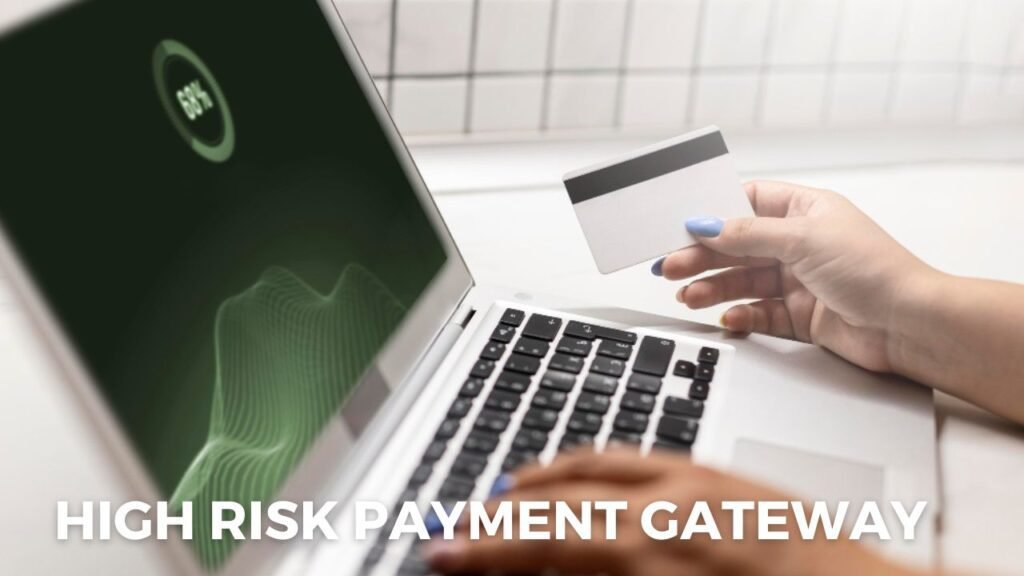How to Get a High Risk Payment Gateway?

Are you running a business in a high-risk industry and struggling to get a payment gateway? You’re not alone. High-risk businesses such as gambling, adult entertainment, and pharmaceuticals face many challenges when it comes to securing a payment gateway. However, there are still ways to get ama high-risk payment gateway and ensure smooth transactions for your business. In this article, we’ll explore how to get a high risk payment gateway and provide you with some useful tips and information.
Table of contents
Understanding High Risk Payment Gateway

Before we dive into how to get a high-risk payment gateway, let’s first understand what it is. A payment gateway is a service that allows merchants to accept electronic payments from their customers. A high-risk payment gateway is a type of payment gateway designed for businesses that operate in high-risk industries. These businesses are considered high risk due to the higher risk of chargebacks and fraud.
Why is it Difficult to Get a High Risk Payment Gateway?
One of the main reasons it’s difficult to get a high-risk payment gateway is that most payment processors are reluctant to work with high-risk businesses due to the increased risk of chargebacks and fraud. Chargebacks occur when a customer disputes a transaction, and the funds are returned to the customer. This can happen if a customer doesn’t recognize the charge on their credit card statement or if they’re not satisfied with the product or service.
How to Get a High Risk Payment Gateway?

Getting a high-risk payment gateway requires some effort and research. Here are some tips that can help you get a high-risk payment gateway:
1. Find a High Risk Payment Gateway Provider
The first step in getting a high-risk payment gateway is to find a payment gateway provider that specializes in high-risk industries. These providers understand the unique challenges that high-risk businesses face and can provide you with the necessary tools and services to manage chargebacks and fraud.
2. Provide Accurate and Complete Information
When applying for a high-risk payment gateway, it’s important to provide accurate and complete information about your business. This includes your business history, financial statements, and any relevant licenses and permits. Providing incomplete or inaccurate information can result in your application being rejected.
3. Mitigate Chargeback Risks
High-risk businesses are at a higher risk of chargebacks, which can lead to payment processor fines and account termination. Mitigating chargeback risks is crucial to getting and maintaining a high-risk payment gateway. This can include using fraud detection tools, providing excellent customer service, and having a clear refund and cancellation policy.
4. Be Prepared to Pay Higher Fees
High-risk payment gateway providers typically charge higher fees than regular payment gateway providers. This is because they assume more risk when working with high-risk businesses. Be prepared to pay higher fees, but also ensure that the fees are reasonable and competitive.
5. Build a Strong Relationship with Your Payment Gateway Provider
Building a strong relationship with your payment gateway provider can help you in the long run. This includes communicating regularly, being responsive to inquiries and concerns, and working together to mitigate chargeback risks.
You May Also Like: How to Get a High-Risk Merchant Account in the US?
FAQs
Q1. What are the benefits of a high-risk payment gateway?
A high-risk payment gateway provides benefits such as specialized services for high-risk industries, fraud detection tools, and chargeback management tools.
Q2. What are the fees associated with a high-risk payment gateway?
Fees associated with a high-risk payment gateway can vary depending on the provider and the services offered. Be prepared to pay higher fees than regular payment gateway providers.
Q3. What is the difference between a regular payment gateway and a high-risk payment gateway?
A regular payment gateway is designed for businesses that operate in low-risk industries, while a high-risk payment gateway is designed for businesses that operate in high-risk industries. High-risk payment gateways provide specialized services and tools to manage chargebacks and fraud, which are more prevalent in high-risk industries.
Q4. Can I switch to a high-risk payment gateway if I’m already using a regular payment gateway?
Yes, you can switch to a high-risk payment gateway if you’re already using a regular payment gateway. However, be prepared to provide accurate and complete information about your business and pay higher fees.
Q5. What should I do if my application for a high-risk payment gateway is rejected?
If your application for a high-risk payment gateway is rejected, don’t lose hope. You can try applying with a different provider or work on mitigating chargeback risks and building a stronger business history.
Q6. How long does it take to get a high-risk payment gateway?
The time it takes to get a high-risk payment gateway can vary depending on the provider and the complexity of your business. It can take anywhere from a few days to a few weeks.
Conclusion
Getting a high-risk payment gateway can be challenging, but it’s not impossible. By following the tips outlined in this article, you can increase your chances of getting a high-risk payment gateway and ensure smooth transactions for your high-risk business. Remember to provide accurate and complete information, mitigate chargeback risks, and build a strong relationship with your payment gateway provider. With the right approach, you can get a high-risk payment gateway and take your business to the next level.
Recent Posts
- Securing Your Small Business: Best Practices in Payment Security
- How Small Business Merchant Services Can Boost Your Bottom Line?
- The Impact of E-commerce on Small Business Merchant Services
- How Merchant Services Can Support Growth for Small Businesses
- Unlocking the Potential: The Pros and Cons of Open Source Retail POS Systems
Recent Comments
- สล็อต บาคาร่า on How Long Does a Credit Card Payment Take To Process?
- สล็อต บาคาร่า on How Long Does a Credit Card Payment Take To Process?
- digital marketing agency Sydney on How Long Does a Credit Card Payment Take To Process?
- EndoliftX on How Long Does a Credit Card Payment Take To Process?
- heng678 on How Long Does a Credit Card Payment Take To Process?
Comments are closed.